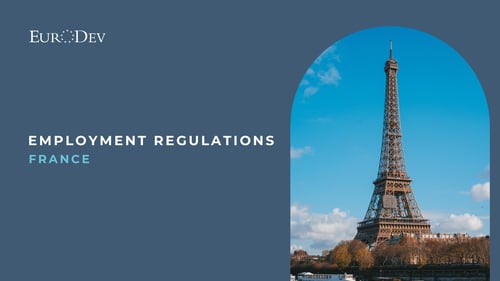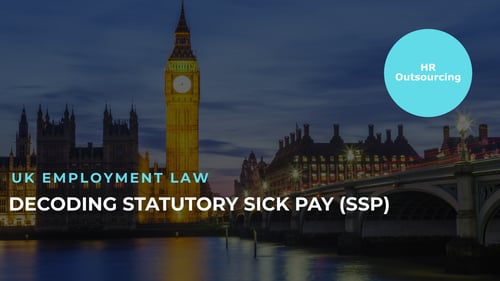Brexit and Employment: What Will Change in 2021?
On 31 January 2020, Brexit took place. For almost a year, the UK has not been part of the EU anymore. Until now, not a lot has changed as 2020 was the scheduled as a "transition period". 2021 will be the start of a complete new situation as there will be new rules and regulations. In this blog, it will be explained what the Brexit will mean for employment and how the situation will look like for UK citizens in the EU and for EU citizens in the UK.
Transition period
This year, 2020, was a transition period in which all EU rules and laws for the UK still apply. Not a lot has changed for citizens and businesses during this time. In this transition period, the EU and the UK have been negotiating about how their new relationship will look like and are attempting to close a deal and final agreement by 31 December 2020. The new situation will have various agreements in place regarding free movement of people and goods by then. There is still uncertainty about the exact outcomes of the negotiations, and there is even a possibility that no deal will be reached which will create a so-called ‘no-deal Brexit’.
Bonus read: BREXIT: Implications of the EU-UK Agreement on European HR and Employment
What will change for EU citizens in the UK?
Not yet residing in UK
After 31st December 2020, EU nationals wishing to start work in the UK will need to apply for European Temporary Leave to Remain (ETLTR), and applications from 2021 will be approved based on a skills-based immigration system. The government Brexit immigration document states this will be based on ‘a single system that welcomes talent, hard work, and the skills we need as a country’.
This will make it harder for EU nationals to get jobs in the UK based on more stringent immigration criteria. EU workers will likely have to pay increased fees to work in the UK, potentially costing them over £1,000, making the UK job market after Brexit less appealing for EU workers. This also affects employers. 50% of business leaders in a survey said they would be put off employing someone from the EU after immigration laws change.[1]
Already residing UK
EU workers already living and working in the UK before 1 January 2021 will need to apply to the EU settlement scheme. Those having lived in the UK for continuous five years will be able to immediately apply for ‘settled status’. With this status citizens are able to have the same right to claim benefits as UK citizens - this is called a 'right to reside'. If the continuous five-year period does not apply, EU citizens would have to apply for a ‘non-settled status’ and re-apply for settled status once they have completed the 5-year residence period. With this status, in order to access welfare benefits, one must be able to show a “right to reside” by being a worker for example. The ‘non-settled status’ will only affect the vulnerable citizens.

What will change for UK citizens in the EU?
Already residing in EU
Similar conditions apply for UK citizens in EU, as the ones for EU citizens in UK: The rule of five year continuous residency prior to 31 December 2020. In this case, one can apply for a residence document for permanent residency under the Withdrawal Agreement (WA). If the period is less than five years, one has to apply for a temporary residency. Temporary residence is less secure than permanent residence as it leaves the applicants with uncertainty. There is always a risk that your permit will not be renewed.
Not yet residing in EU
For British nationals who are not already living in the EU, moving to Europe after Brexit and finding employment will become more of a challenge. The EU host countries could ask them to comply with more restrictive rules related to permits and applying for Blue Cards. Also, the host country would first need to recruit within the Netherlands and the EU, Norway, Iceland, Liechtenstein and Switzerland. If they cannot find a suitable candidates, they may hire British staff. More subtle rules apply for highly skilled-workers.
For frontier workers (cross-border commuters) it is currently uncertain whether they will be able to start working in the Netherlands as a British from 2021 onwards without a work permit. This depends on the arrangements made by the UK and the EU. If no agreements are made, the frontier workers will need to ask their local employer to apply for a work permit for them.
To conclude, we can see that for those already residing in UK or EU with a local nationality, there will not be much change. However, for those wishing to employ across borders, similar rules as the ones currently in place for other non-EU members will apply. This will mean applying for residence permits, and hence more bureaucracy and complicated legislative procedures. In general, post-Brexit immigration policy prioritizes high-skilled migrants.
About EuroDev
EuroDev, established in 1996 with offices in The Netherlands, has a single, defined purpose to help mid-sized North American companies expand their business in Europe. We have created a proven, successful business development model and since our founding, have partnered with over 300 companies to help them define and meet their European business goals. Services provided include Sales Outsourcing, HR Outsourcing, and Digital Marketing.
Category
Related articles
-

Essential Guide to French Employment Regulations
22 March 2024comprehensive guide on French employment regulations for companies expanding to France, covering...
Read more -

Germany's Pension Landscape: Navigating Benefits and Taxation for Informed Decision-Making
5 February 2024Dive into the intricacies of the German pension system: benefits, calculations, retirement options,...
Read more -

Decoding Statutory Sick Pay (SSP) in the UK
29 January 2024Navigate the complexities of Statutory Sick Pay in the UK with our guide on rights, regulations,...
Read more

